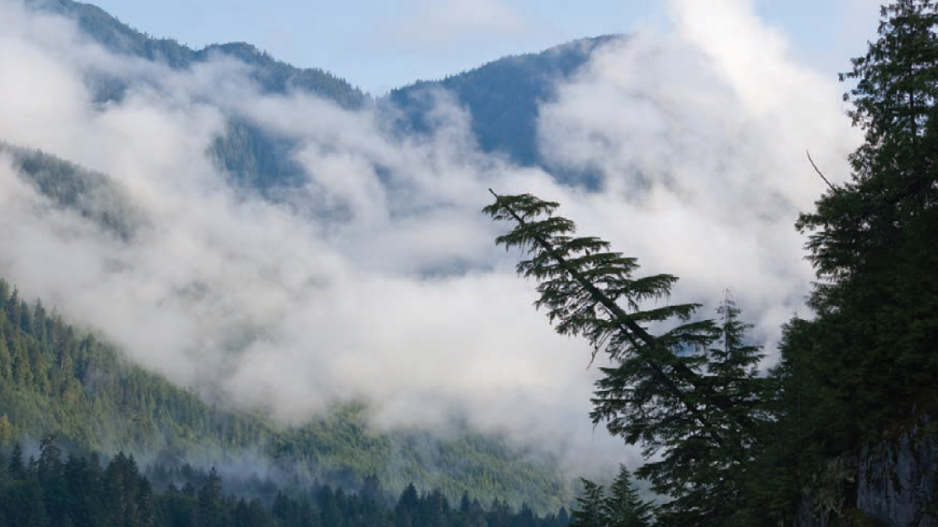Great Bear Rainforest Agreement
On February 1, the B.C. government signed off on a landmark agreement that ended 20 years of environmental conflict over logging on B.C.’s central coast. Eighty-five per cent of the 6.4 million-hectare Great Bear Rainforest is protected while forest companies have the certainty they need to operate on the remaining 15%. The agreement also brings the region’s indigenous communities into the economy by allocating timber tenures and making them partners in decision-making. The groundbreaking agreement has the potential to become the template for resolving other land-use conflicts.
U.S. housing market recovery
After almost a decade of decline, stagnation and false beginnings, the annualized rate of U.S. housing starts hit a nine-year high in October of 1.32 million. While still below the long-term average of 1.5 million, the October tally spells good news for the B.C. forest sector, which ships 67% of its lumber to the U.S. A strong U.S. market can counter other negative forces, such as softwood lumber duties or a decline in Chinese exports.
Low Canadian dollar
The dollar remained low in 2016, boosting revenues for B.C. forest companies at critical time in the U.S. housing cycle. B.C. lumber producers sold lumber into the U.S. for higher-valued U.S. dollars. A low dollar also provides a currency-related competitive advantage for Canadian producers, helping B.C. lumber companies hold onto their customers in the Chinese market. A third of all B.C. lumber shipments go to price-sensitive China.
Softwood lumber war
After a 10-year hiatus, U.S. producers launched the fifth softwood dispute with Canada in late November by filing a petition seeking countervailing and anti-dumping duties. It’s a battle that began more than 40 years ago over access to the U.S. housing market. The underlying arguments haven’t changed. American producers allege Canadian provinces subsidize lumber companies here, something Canada fiercely denies. Duties as high as 40% could be imposed, causing mill closures and job losses here.
Mountain pine beetle
It’s more than 20 years since the beetle began eating its way through B.C.’s lodgepole pine forests, yet the impact is far from over. Most recently, Tolko Industries announced the closure of its sawmill at Merritt, after the province’s chief forester announced a 38% drop in the region’s timber supply because of the beetle. Two hundred jobs were lost. Beetle-killed timber brought opportunity for at least one company in 2016: Duz Cho Logging opened a sawmill at Mackenzie, milling small-diameter beetle wood into cants for export to China, adding 28 new jobs.
Tall wood buildings
At 53 metres high, the University of British Columbia’s Brock Commons attracted international attention as the tallest hybrid wood building in the world when it was topped out in September. Above a concrete main floor are 17 storeys made from glue-laminated wood columns and giant panels of cross-laminated timber made from layers of dimension lumber. Brock Commons put this province at the forefront of new construction technologies using green forest products.
Loggers face economic crisis
Logging contractors, the backbone of many of the small coastal B.C. communities, say their businesses are no longer sustainable as logging costs climb, yet the increases are not reflected in the amount they are paid by forest licensees. The dispute between loggers and licensees led to layoffs at a Port Alberni sawmill during the summer, when the log supply ran out. The West Coast-wide issue remains a sore point.
Old-growth logging
Despite the success of the Great Bear Rainforest agreement, a gulf is developing between supporters and opponents of logging on Vancouver Island, where increasing urbanization is leading to pressures to ban old-growth logging. Reflecting that change, the Union of BC Municipalities endorsed a resolution at its annual meeting last September calling for protection of the Island’s old growth from logging.




